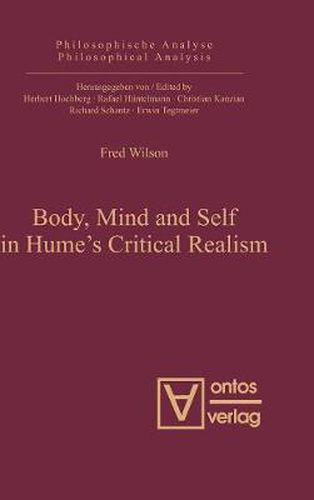Readings Newsletter
Become a Readings Member to make your shopping experience even easier.
Sign in or sign up for free!
You’re not far away from qualifying for FREE standard shipping within Australia
You’ve qualified for FREE standard shipping within Australia
The cart is loading…






This essay proposes that Hume’s non-substantialist bundle account of minds is basically correct. The concept of a person is not a metaphysical notion but a forensic one, that of a being who enters into the moral and normative relations of civil society. A person is a bundle but it is also a structured bundle. Hume’s metaphysics of relations is argued must be replaced by a more adequate one such as that of Russell, but beyond that Hume’s account is essentially correct. In particular it is argued that it is one’s character that constitutes one’s identity; and that sympathy and the passions of pride and humility are central in forming and maintaining one’s character and one’s identity as a person. But also central is one’s body: a person is an embodied consciousness: the notion that one’s body is essential to one’s identity is defended at length. Various concepts of mind and consciousness are examined - for example, neutral monism and intentionality - and also the concept of privacy and our inferences to other minds.
$9.00 standard shipping within Australia
FREE standard shipping within Australia for orders over $100.00
Express & International shipping calculated at checkout
This essay proposes that Hume’s non-substantialist bundle account of minds is basically correct. The concept of a person is not a metaphysical notion but a forensic one, that of a being who enters into the moral and normative relations of civil society. A person is a bundle but it is also a structured bundle. Hume’s metaphysics of relations is argued must be replaced by a more adequate one such as that of Russell, but beyond that Hume’s account is essentially correct. In particular it is argued that it is one’s character that constitutes one’s identity; and that sympathy and the passions of pride and humility are central in forming and maintaining one’s character and one’s identity as a person. But also central is one’s body: a person is an embodied consciousness: the notion that one’s body is essential to one’s identity is defended at length. Various concepts of mind and consciousness are examined - for example, neutral monism and intentionality - and also the concept of privacy and our inferences to other minds.